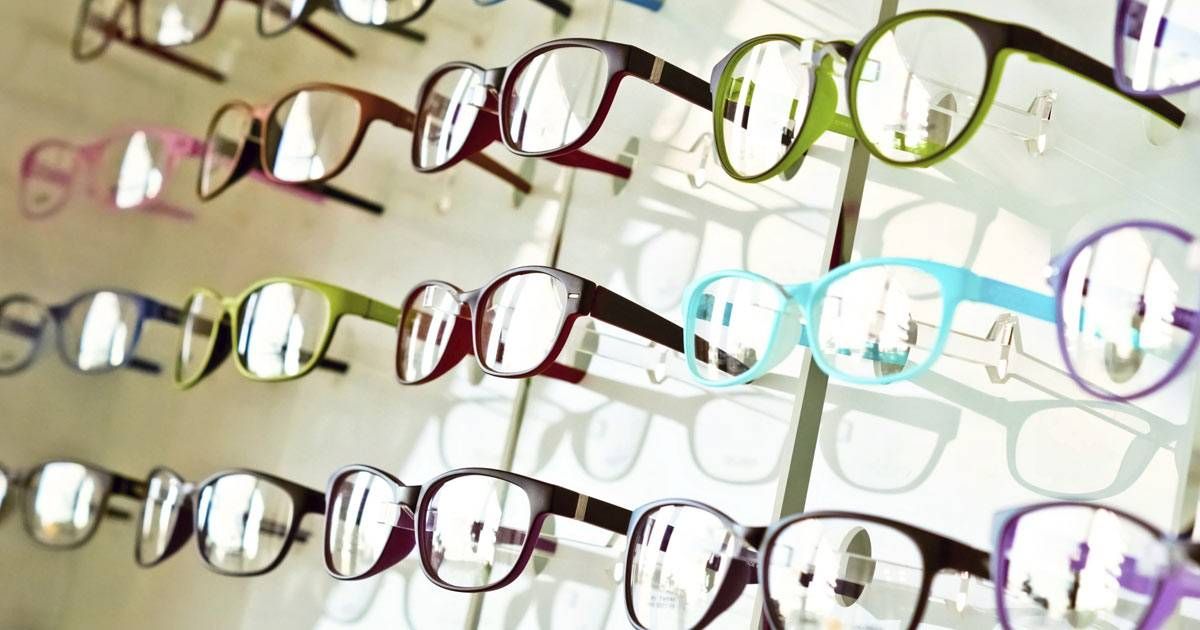Blurry Eyes, Clarity of Vision
A midlife lesson in the challenges of old age
For 10 years now, my father’s vision has been severely diminished in the left eye. And for 10 years now, rare is the visit or phone call when my dad doesn’t voice his frustration with a situation that has curtailed his driving and taken an ax to his once-avid reading habit.

Each time he mentions it, I try to sound sympathetic. “That’s gotta be hard.” “I feel for you.” But sometimes what goes through my head is an impatient phrase like, “Dude, you’ve told me that, like, a million times.”
These last six weeks, I’ve found myself in a peculiar kind of hell that has brought my dad’s visual blur — and my impatience with his constant repetition — into sharp focus.
Progressive Prescriptive Woes
It began with a visit to a new eye doctor to switch from my three pairs of glasses — reading, computer and distance — to a single pair with progressive lenses. For reasons that remain unclear, the prescription was way off, and after two weeks I went for another eye exam, saying that I also wanted to return to three separate pairs of glasses.
Perhaps because that new prescription strained my eyes for almost two weeks (I hung in, thinking it was the challenge of adjusting to progressive lenses), subsequent exams also proved misleading on all three distances. As a result, I could not comfortably do any of the activities that most often fill my days: reading, writing, working at my desk and watching TV. Pilates classes and phone calls with my grief coaching clients aside, my life came to a screeching halt.
I say this with embarrassment, as I know there are people who grapple — gracefully — with eye impairment and blindness. But as I burned through one set of lenses after the next following each of my three visits to the new doctor, and two to my former ophthalmologist, I devolved from frustration to agitation to outright obsession.
Round and round my brain went, pretty much 18/7 (the other six for sleep), trying to figure out why a new prescription wasn’t working; if the last one was better than this one and if there was anything I could do to ensure a better outcome at the next examination. I even Googled how to read a prescription and then tried to divine more satisfying prescriptions.
Missing the Trees for the Leaves
To say I wasn’t fun to live with is — again, I admit this with embarrassment — an understatement. My poor husband, Bob, indulged my assorted self-remedies with stoic patience. I remembered, for instance, that when my dad was 20 and was rejected by the Navy because he was too myopic, his eye doctor told him to do certain eye exercises and stare at trees for several weeks. At the end of those weeks, Dad’s eyes had improved so much, he was able to enlist.
“I need a beach chair,” I announced to my husband one day. “I need to stare at trees.”
Bob drove me to various stores until we found a beach chair. For the next three days, I went to a park, did eye exercises and stared at greenery. On day four it rained, so I stared through the screen on my porch. On day five, after I picked up the latest lenses and discovered I still couldn’t read comfortably, I bailed on this strategy (though I do continue to sit on the porch and listen to the birds. Turns out that’s really enjoyable).
When I thanked Bob for being my “seeing eye husband,” he said, “That’s not funny.”
No, I agreed. It wasn’t.
Like Father, Like Daughter?
Another day, I got it in my head that I should wear no glasses at all until I saw the doctor in the afternoon. Perhaps that would cut down on distortion from the latest incorrect lenses. To fill the hours, I sat on the porch and listened to podcast after podcast. (Actually, this solution opened a whole new world to me that I highly recommend. For intellectual stimulation, there’s The New Yorker Radio Hour. For random topics, TED Radio Hour. For bawdy humor, My Dad Wrote a Porno.)
Each day, I also called my father, as is my habit. The first time I told him about my vision woes, he said, “That’s what I live with everyday.” Though his tone was sympathetic, I felt irritation stir. I didn’t want to hear about his vision problems at this moment. Really, I didn’t.
After all, I’ve been listening to him constantly since 2007, when a vein burst in his left eye, causing a swelling that never subsided and rendered the eye essentially blind. To function on his computer, he has to rely on a screen the size of a large flat-screen TV so he can enlarge the letters and numbers. To read on his Kindle, he has to ramp up the font size so large that he gets only a few lines per page. Even then, he can’t read for more than a half hour or so before the text gets blurry.
It doesn’t help that my father has had glaucoma in both eyes since he was 30. It also doesn’t help that when my dad was a young boy, his maternal grandmother went blind from retinitis pigmentosa at 47. As a result, blindness has always been one of my dad’s greatest fears.
“Maybe your eye situation is freaking you out because of your father,” my husband suggested one day.
“Good point,” I responded. That aha moment soothed me for about five seconds.
Along the days, each one of which felt like years as I struggled to fill the hours, I stopped calling my father. I didn’t want to deliver the news that things were still not right.
Dad, however, has taken to calling me. “How are you, sweetheart?” he always starts. Each time, I can hear the tentativeness in his tone as he braces for my answer.
Last week, there was some good news to offer. The long- and mid-distances lenses are now comfortable. Once again, I am able to work at the computer and watch TV without strain. “But,” I report in day after day, “I still can’t read.”
I can feel his sympathy, his weariness, his pain each time he responds, “Oh, my. I know what that’s like.”
As the reality of his situation sinks deeper and deeper into my mind and heart, I’ve begun to experience a feeling that I think of as Reviver’s Guilt. Both of my doctors have assured me that there is nothing wrong with my eyes, so I have good reason to believe that once I secure a correct near-distance prescription, my life as I know it, cherish it and count on it will revive. The life my father once knew, cherished and counted on, sadly, will not. I’ve known that for a long time. But now I truly understand what it means — and, truly, it sucks.
I am now counting down the two weeks to my next eye appointment (the doctor is on vacation), then the 24 hours it will take to have yet another pair of reading glasses made.
I fervently hope that those lenses are right and that my life returns to normal. I also fervently hope that I never again feel a tug of impatience when my 87-year-old father feels a need to talk about his eyes. Instead, I hope that I listen with an open heart and an open ear. Because I get it now about this aging business. Really, I do.


